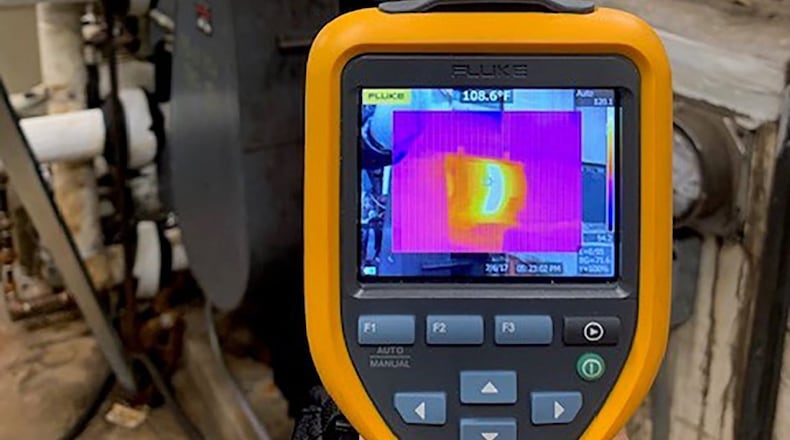“These audits are simply an inspection of how a facility is utilizing its energy,” said Gaballa.
As technologies advance, the demand on energy is increasing rapidly while energy resources are steadily decreasing. Therefore, to reduce its energy footprint, the federal government has published an ample amount of guidance in the Energy Policy Act 2005 and the Energy Independence and Security Act 2007.
“As an energy engineer, my focus is on optimizing facility energy performance,” said Gaballa.
At Wright-Patterson AFB, as well as the Air Force overall, energy availability and resiliency impacts all missions, from protecting installation facilities and infrastructure to aviation operation which protects the nation.
The base energy team conducts facility energy audits to improve the buildings energy efficiency and enhance occupancy conditions.
“Lighting and heating, ventilation and air conditioning systems are the largest energy-consuming functions in a typical building and improving each systems efficiency can save money on Wright-Patt’s monthly utility bill,” said Gaballa.
Large- and small-scale projects, in conjunction with plenty of planning, all contribute in achieving the base’s energy-saving goals.
“Small projects are those that can be achieved by building occupants at no or low cost, while full-scale operations and management projects are managed by Civil Engineering,” said Gaballa. “Smaller projects are those which result in most and instantaneous savings and the ‘low hanging fruit’ projects such as temperature control and replacing light fixtures with efficient, LED-type lamps.”
The Air Force has set three goals to optimize energy use and carry out future missions: improve resiliency, optimize demand and assure supply.
“The 88 CEG has identified multiple projects which will not only save energy, but will boost energy resiliency and enhance the working environment,” said Gaballa.
Some projects include the repair of damaged roofs and installation of the appropriate R-value insulation. According to Gaballa, this will extend building life cycles and lower the overall operational costs.
“We ask everyone on base to help us support the energy conservation goals by using energy-efficient habits,” said Gaballa. “Turn off lights when not needed, report HVAC and lighting deficiencies, follow the use of personal electrical appliances and unplug anything electrical when not in use.”
About the Author
